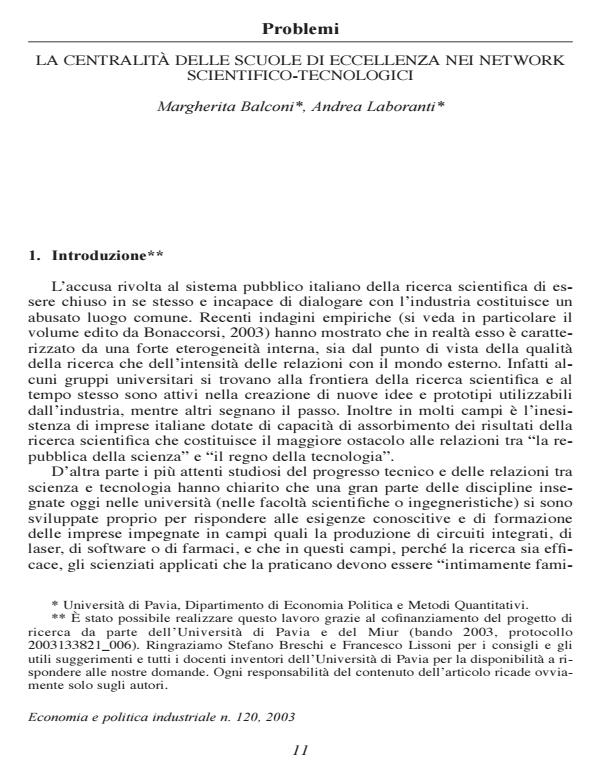La centralità delle scuole di eccellenza nei network scientifico-tecnologici
Titolo Rivista ECONOMIA E POLITICA INDUSTRIALE
Autori/Curatori Margherita Balconi, Andrea Laboranti
Anno di pubblicazione 2004 Fascicolo 2003/120
Lingua Italiano Numero pagine 33 P. Dimensione file 800 KB
DOI
Il DOI è il codice a barre della proprietà intellettuale: per saperne di più
clicca qui
Qui sotto puoi vedere in anteprima la prima pagina di questo articolo.
Se questo articolo ti interessa, lo puoi acquistare (e scaricare in formato pdf) seguendo le facili indicazioni per acquistare il download credit. Acquista Download Credits per scaricare questo Articolo in formato PDF

FrancoAngeli è membro della Publishers International Linking Association, Inc (PILA), associazione indipendente e non profit per facilitare (attraverso i servizi tecnologici implementati da CrossRef.org) l’accesso degli studiosi ai contenuti digitali nelle pubblicazioni professionali e scientifiche.
Previous investigations showed that Italian university professors are the authors of a considerable share of the patents owned by firms in science-based technological classes. The analysis conducted in this paper of USPTO patents confirms those results. Moreover, we show that the realization of patents in the context of researches funded by firms involves undergraduate and PhD students, university fellows and technicians: thus, the role of the academy appears significantly augmented. It also appears that the cooperation between university and industry in patenting is concentrated in a few academic centres of excellence. Therefore, focusing on the field of electronics, we seek to identify and depict academic centres of excellence. By applying the methodology of Social Network Analysis, we are able to show their importance not only in the production of codified knowledge, but also in the transfer of know-how and tacit knowledge. Moreover, we confer analytical substance to the concept of invisibile college, measuring their dimensions and structural features. The centre of excellence, which is the core of the principal component of the network, gives rise to a real invisible college, in which the academic and the technological world are interpenetrated. And this interpenetration does not hinder purely scientific production, but rather it seems to favour it.
Margherita Balconi, Andrea Laboranti, La centralità delle scuole di eccellenza nei network scientifico-tecnologici in "ECONOMIA E POLITICA INDUSTRIALE " 120/2003, pp , DOI: